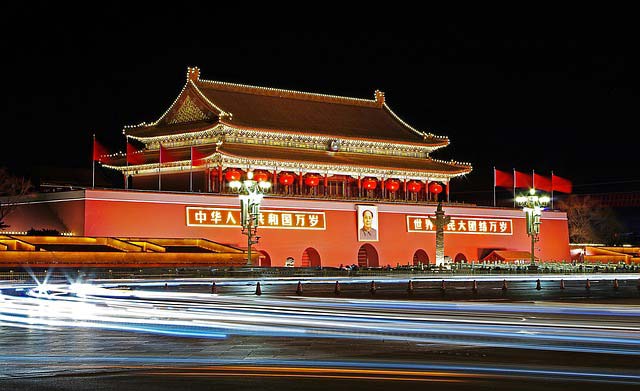
Beijing’s online retail market began relatively early, and in recent years has experienced rapid growth, such that it is now the primary driver behind consumption in Beijing. In 2016, sales from wholesale and retail enterprises above reporting size exceeded 200 billion yuan (US$29.76 billion), with an average yearly growth rate of 48.9% over the last five years.
In that timeframe, online retail went from accounting for 4% of social consumer goods sales in 2011 to 18.6% in 2016. In the first half of 2017, online retail sales made up 24.4% of all social consumer goods sales, a further increase of 8.3 percentage points over the first half of 2016.
On August 1st, Beijing’s Municipal Bureau of Statistics announced that, as part of the ongoing effort to ease the situation faced by the non-government functions of the city, Beijing would be introducing a series of policies to deepen business transitions, advance consumer regulation, and make structural improvements to consumption.
From this year on, growth in Beijing’s consumption is to shift from relying solely on growth in consumption of goods towards relying on both goods and services, while shifting consumption patterns towards high-end goods and emergent services.
In the first half of 2017, total consumption in Beijing reached 1.12 trillion yuan (US$ 166.4 billion), an increase of 9.3%. Of this figure, commercial consumption (total sales of retail goods) accounted for 525.7 billion yuan (US$78.2 billion), an increase of 5.6%, and consumption of services stood at 592.6 billion yuan (US$88.2 billion), an increase of 12.7%. Services thus contributed 70.7% of total consumer market growth, making it the primary moving force in increasing consumption.
Innovation in e-commerce alters consumption patterns
Beijing’s online and offline consumption are interfacing in an increasingly seamless fashion, driving innovation and altering consumption patterns, with e-commerce at the forefront of the changes. Beijing Municipal Bureau of Statistics has said that Beijing’s online retail market began relatively early, and in recent years has experienced rapid growth, promoting change in consumption patterns and becoming a major driving force in Beijing’s economy, and has gradually entered a more mature phase of stable growth.
Data shows that in 2016, sales in Beijing from wholesale and retail enterprises above reporting size exceeded 200 billion yuan (US$29.76 billion), with an average yearly growth rate of 48.9% over the last five years. In that timeframe, online retail went from accounting for 4% of social consumer goods sales in 2011 to 18.6% in 2016, six percentage points higher than the national average and ranking first in the nation.
In the first half of 2017, online retail and wholesale sales increased by 15.4% over the first half of 2016, to 94.9 billion yuan, growing at a rate 6 percentage points higher than last year, and making up 24.4% of all social consumer goods sales, a further increase of 8.3 percentage points over the first half of 2016.
As new business models emerge, food and hotel industries usher in new opportunities
With the entry of “Internet+” models into the market, the food and beverage industry is changing the way in which it delivers services; group buying, delivery, mobile kitchens, and similar new models are increasingly popular.
In 2016, food and hotel industries above reporting size earned 5.83 billion yuan (US$867.5 million) through online channels, 1.8 times what had been earned the year prior. In the first half of this year, online platforms for food services have contributed 45.5% to the expansion in this market.
Old brands come back to life through e-commerce
In addition, with the help of the internet, many older brands have been able to achieve a new life. In 2016, of 77 brands with revenues above reporting level, 14 have launched e-commerce businesses, selling products from foodstuffs and medicines through shoes and books and earning 470 million yuan (US$69.9 million) in revenue from online sources, an increase of 43.7% over 2015. In the first half of the year, another brand has joined those 14, and they have collectively earned 320 million yuan (US$ 47.6 million) through e-commerce.